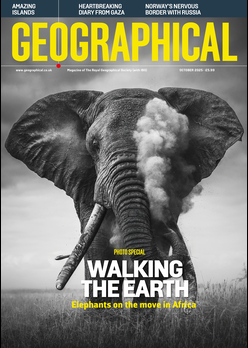Passport

Professor of island studies Jonathan Pugh on how our understanding of tropical islands is changing

PASSPORT
Jonathan’s travel insights
• Make an effort to understand the place you’re visiting
• Read up on local history, politics, culture and the issues affecting locals
• Search out local writers, artists, poets and musicians rather than just Western sources
In the Western imagination, tropical islands have long been seen as distant, lonely places that only exist on the periphery of everything else. That’s changing, says Jonathan Pugh.
Pugh is a Newcastle University professor of island studies. It’s a growing area of research, albeit one with a long history. ‘So many people who have done work on islands wouldn’t necessarily call themselves professors of island studies,’ he says, pointing to the revolutionary ideas that have emerged from them. ‘Darwin developed the theory of evolution from his work on islands; anthropology developed as a field of study through Margaret Mead’s studies of islanders in Oceania.’
However, it’s the current shift in Western attitudes that’s now making the academic study of islands an ‘increasingly vibrant’ field – as Pugh puts it. ‘More and more, islands are moving to the centre of a whole range of debates and issues; things like the climate crisis, nuclear waste accumulation, ocean acidification and the legacies of colonialism.’
Despite their vulnerability, islands are also increasingly seen as places from which the West can learn about adaptation and resilience to global change. Pugh argues that as Western governments seek to devolve the responsibility of tackling climate change to individuals, it’s inevitable that they turn towards cultures that exemplify resilience. ‘Think of the resilient islander on their island, adapting to what’s been thrown at them – that’s why Westerners are so interested in islands today,’ he says.
Beyond the interest of governments and social scientists, however, Western attitudes have in many ways remained the same. ‘I think it’s fair to say that the figure of the island is still framed by old colonial tropes of being insular, isolated, even backward,’ says Pugh. ‘And yes, the Western Gaze still thinks like that; it still tends to think of islands as paradises – that’s how they’re sold, and sometimes how they sell themselves, for tourism.’

Pugh spent the first 15 years of his career looking at the negative impacts of tourism in the Caribbean. Although vital for local economies, tourism development has had a significant environmental impact on the region, and has driven the segregation and privatisation of public areas, particularly beaches. It’s a long-standing issue, one that Pugh says is highlighted by the lyrics of Barbadian calypso singer The Mighty Gabby (Anthony Carter)’s 1982 song Jack (Dah beach is mine).
Pugh is hesitant to advise travellers to the Caribbean on the best way to reduce their environmental footprint – an important but often complex task. Instead, he says that visitors should read up on the history of the Caribbean. ‘I’m always surprised to hear people say they were unaware that the Caribbean was subjected to 400 years of slavery,’ he adds. ‘I think that learning about and engaging with a place before you travel is one of the most powerful things you could do.’
He suggests that travellers to the Caribbean start by exploring the region’s ‘incredible wealth of literature, art and poetry’, which is often overlooked by the USA and Europe. ‘There’s the work of Édouard Glissant, Derek Walcott (who won the Nobel Prize for Literature in 1992), Kamau Brathwaite, Sylvia Wynter, CLR James and Walter Rodney.’
Ultimately, however, while an awareness of the Caribbean’s colonial history puts many of its contemporary issues into context, awareness alone isn’t the end goal. ‘I guess it’s a start,’ says Pugh. ‘But the real question is: what are you gonna do differently?




